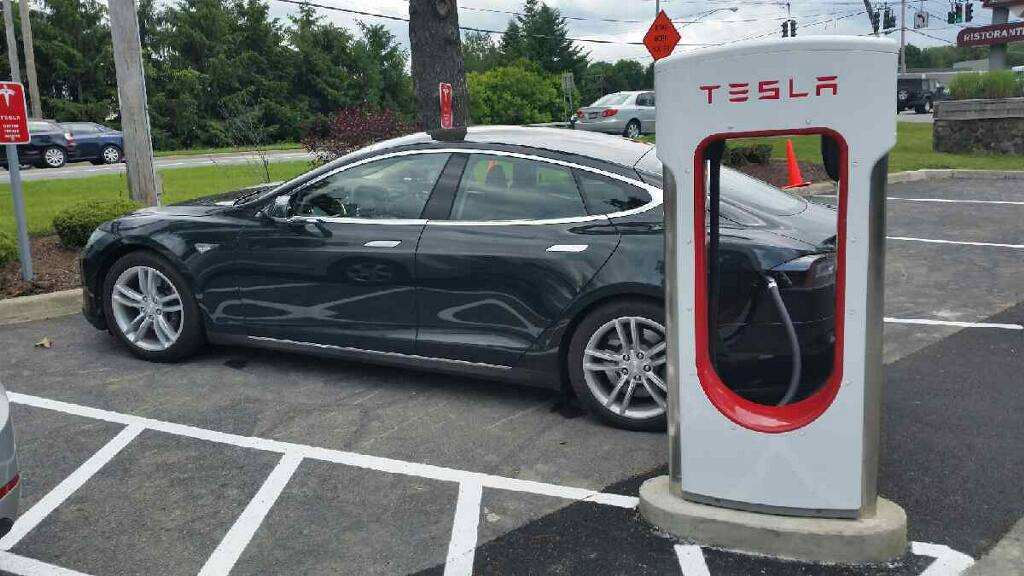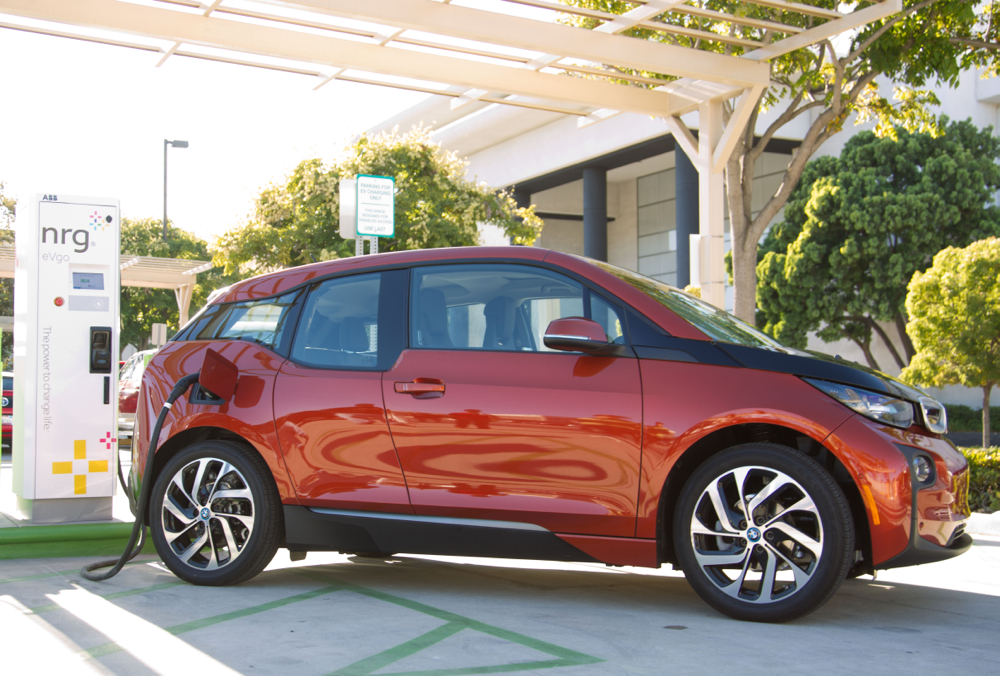By now, purchase incentives are a well-proven and valuable tool in increasing electric-car adoption.
But what if incentives were applied to more than just the cars?
Different automakers have shown varying levels of interest in developing DC fast-charging networks for the electric cars they produce, with Tesla leading the way with its Supercharger network.
DON'T MISS: Tesla releases Supercharger electric-car fast-charge prices
So would automakers be able to increase electric-car sales if they put more effort into these networks?
Or, as Car and Driver posed the question, does access to a robust fast-charging network sell more electric cars?
Both BMW and Nissan coordinate charging access for buyers of new cars to some extent, although Tesla ended unlimited free access to its Supercharger stations at the beginning of this year.

Tesla Supercharger site in Newburgh, New York, up and running - June 2015
Under its No Charge to Charge program, Nissan offers two years of free charging to buyers of new Leaf electric cars at specific stations.
Access to a public charging network has an "overweighted influence on purchase decision," Anthony Lambkin, Nissan electric-car infrastructure manager for North America, told Car and Driver.
Still, automakers don't want customers to view public stations as a substitute for home charging.
ALSO SEE: Easier Electric-Car Charging: BMW ChargeNow, Nissan EZ Charge (Apr 2014)
Nissan doesn't view No Charge to Charge as a substitute for home charging, and it noted that more than 80 percent of users charge fewer than 10 times a month with the service.
Tesla views its Supercharger stations as enablers of long-distance driving only, and has had a few challenges in trying to dissuade customers from using them for local driving.
By investing in its own brand of charging stations, Tesla guarantees a consistent experience for customers, with stations that look familiar and operate in the same way at every Supercharger site.

BMW i3 at DC fast-charging station
That's not something that can be said of Nissan's approach, which relies on the automaker partnering with other companies to install public charging sites that can typically be used by other makers' electric models as well.
This means Nissan drivers are confronted with different charging stations from different operators, using different validation procedures and display screens—which can prove confusing.
MORE: Much faster electric-car charging: on a fast track
Yet that may become the standard approach as more automakers invest in public fast charging. So far, only Tesla has committed to building and operating its own network.
It's also unclear how long automakers will be willing to pay for public charging sites without a clear way to earn revenue from them.

2017 Nissan Leaf
Quite a lot of public charging is offered for free, or at rates too low to earn a profit.
(That applies more to 240-volt Level 2 charging than it does to the much higher-powered DC fast charging, however. )
Tesla has said it does not expect to profit off its Supercharger network, even with the new fees in place.
The real question, then, is whether automaker's subsidies for public charging can bring in enough new electric-car buyers to make the investment worthwhile.
_______________________________________________












